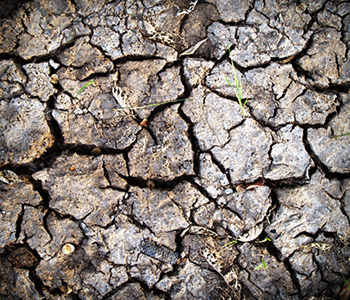
Whether you’re a business owner or the one who’s getting their hand dirty, soil pollutants and the well-being of the earth beneath our feet is a great concern. To save ourselves and the environment, we need to take a few drastic steps towards a better tomorrow. But first, let’s look at what exactly is soil pollution, what different types there are and then we’ll get into changing for the better.
While contaminants or pollutants are naturally present in the soil, soil pollution is said to occur when the level of toxic chemicals in the soil are more than the level that should be naturally present. This high concentration of chemicals creates a risk for both humans and our ecosystem.
Sources of soil pollution can broadly be divided into the following two categories:
These are the major contributors to soil pollution.
· Industrial waste
· Urban waste
· Agricultural pesticides
Natural processes can cause accumulation of toxic chemicals in the soil which results in soil pollution.
· Acid rain
· Accumulation of salt compounds
· Natural production of mineral
The 5 main types of soil pollutants are described below:
Biological agents, also known as bio-agents, include the following:
· Bacterium
· Viruses
· Protozoans
· Fungi
· Parasites
These work inside the soil to introduce digested sludge and manure. The source of these fertilizers come from humans, birds and animals.
Contamination of the environment can be caused by the natural and chemical products used in farming. This contamination can harm all living organisms which depend on the food that is cultivated. Agricultural pollution is caused by the following properties:
· Chemical fertilizers
· Pesticides
· Herbicides
· Slurry
· Manure
· Debris
Any process that emanates radiation in the environment can be a source of radioactive pollution. Examples of radioactive substances would include:
· Uranium
· Radium
· Thorium
· Nitrogen
These can penetrate the soil and can have toxic effects on the surrounding areas.
Municipal soil waste is a prominent type of soil pollutants. It includes:
· Dried sludge
· Garbage and rubbish materials
· Sewage from domestic and commercial sources
When this waste is flushed into the soil, it affects the crops and makes them unsuitable for both human and animal consumptions.
Industrial Waste
A large percentage of soil pollution is caused by industrial waste. If this waste is disposed of inappropriately, it can enter the soil and harm it with chemicals. Major contributors of industrial waste would include:
· Paper mills
· Sugar industries
· Oil refineries
· Petroleum factories
· Producing steel
· Pesticides
· Textile factories
· Drug production
· Glass production
To save the ecosystem from further damage, serious measures must be taken to decontaminate soil. Need help tackling soil pollutant issues? Plastech Plus can provide you with the right equipment to get ahead in the game and avoid a problem before you create one! Contact us today with any questions you may have and we’ll do our best to help you find a solution.